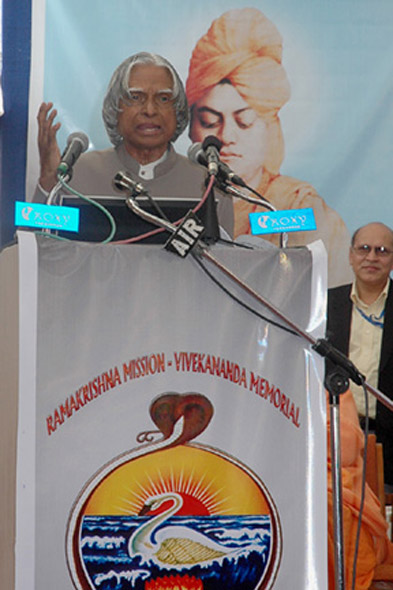
Thanks to his own influence, as well as that of Swami Vivekananda, Ramakrishna is known beyond India. Indeed, the Nobel laureate Romain Rolland published a biography of Ramakrishna in 1929, while in 1932 the philosopher Henri Bergson referred to Ramakrishna in The Swo Sources of Morality and Religion(Chapter III). Elsewhere, Gandhi, Nehru, Rabrindanath Tagore and Subas Chandra Bose have all credited Swami Vivekananda as a key influence in their social awareness and political pursuits. Further afield, the life and works of Aldous Huxley and Christopher Isherwood are also connected with the Ramakrishna Movement.
More recently, in 1998 the Indian government awarded the Gandhi Peace Prize to the Ramakrishna Movement for “its activity in favour of social wellbeing, tolerance and non-violence by coming to the assistance of disadvantaged peoples”.
In 2002, the Ramakrishna Movement received an Honourable Mention during the awarding of the Madanjeet Singh Prize at the UNESCO. As part of this Mention, the jury recognised the Mission’s "unrelenting efforts to promote the principles of tolerance and non-violence in assisting disadvantaged groups”.



